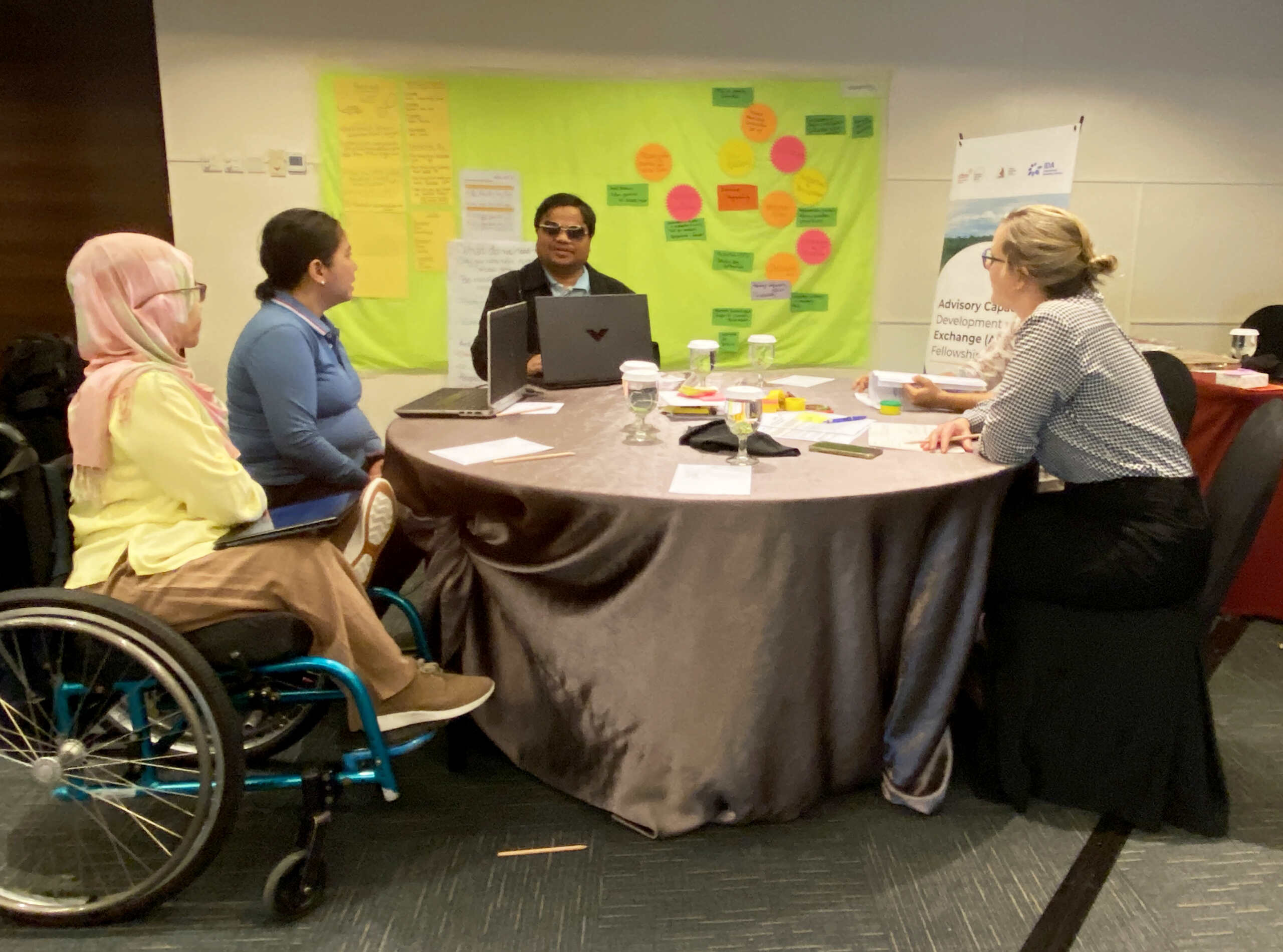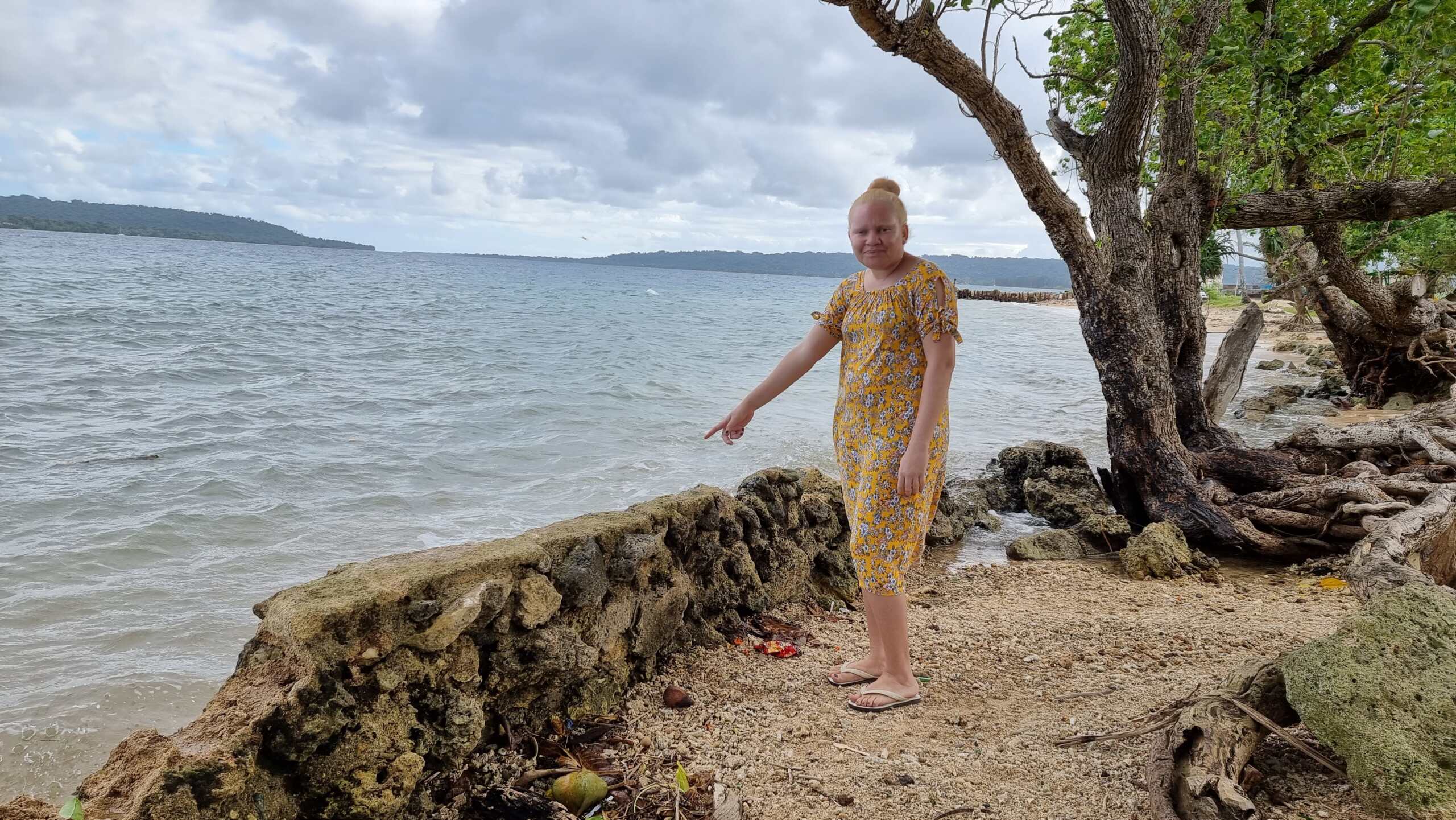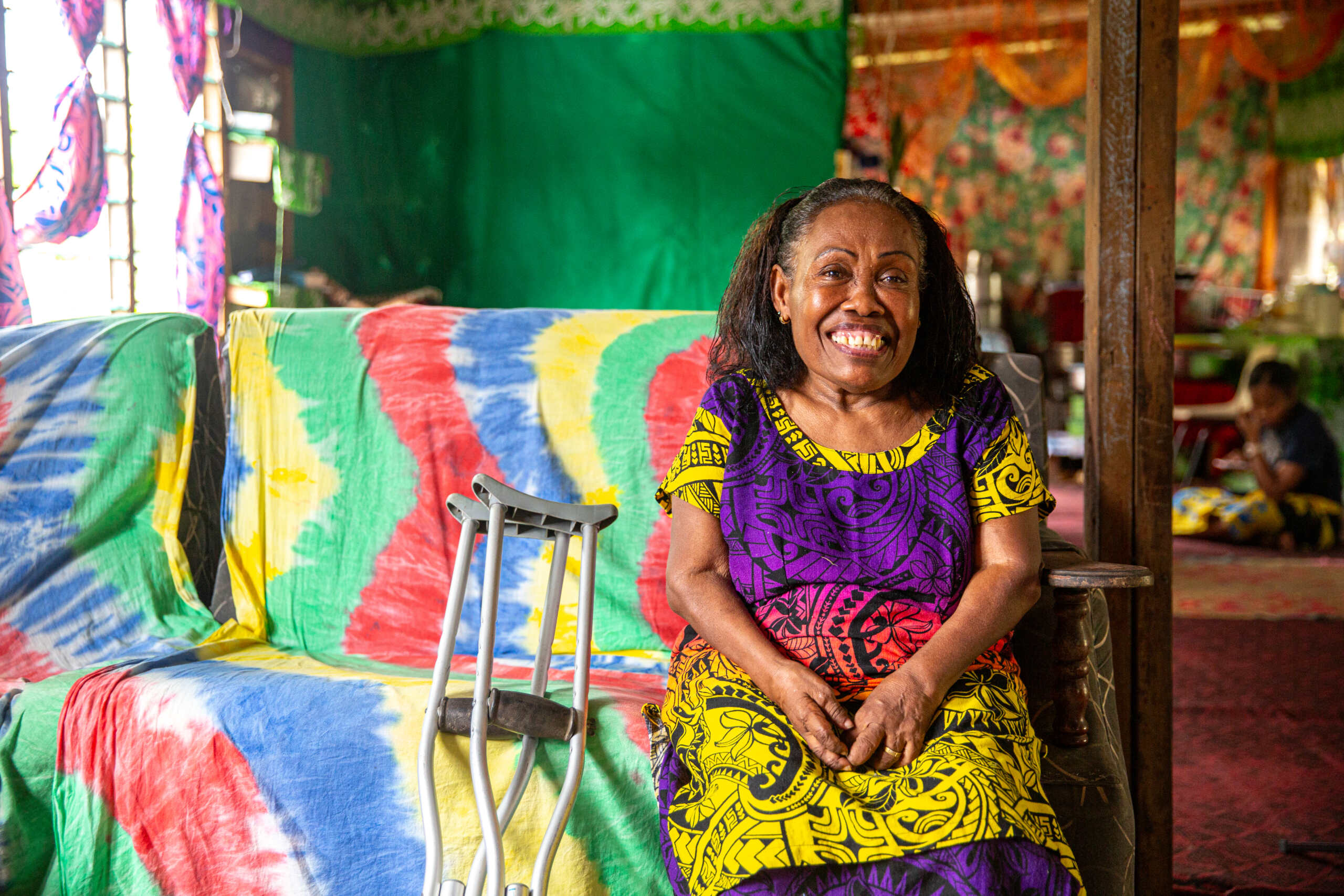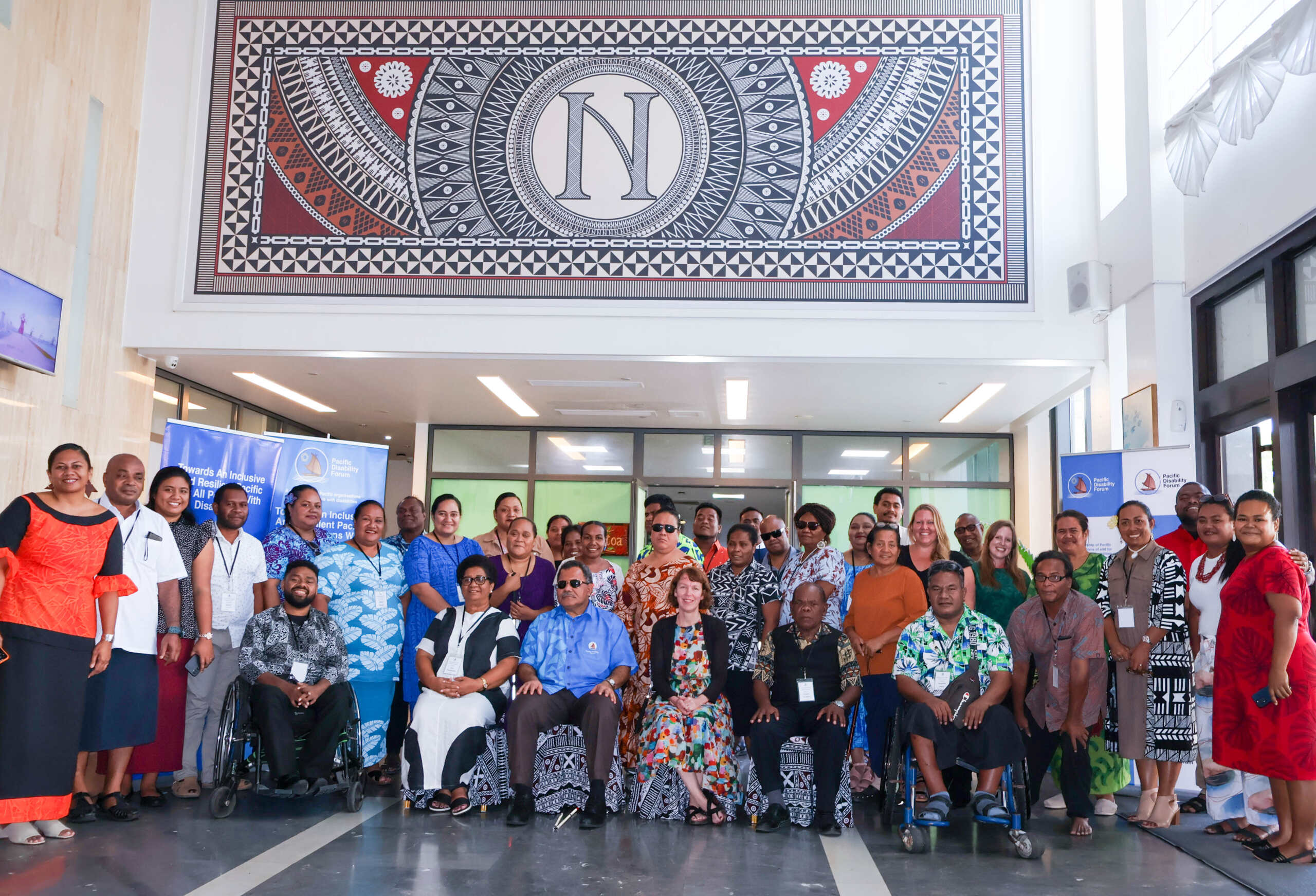Partnering to amplify our impact in the Pacific
CBM Australia is working together with partners to embark on an ambitious expansion to amplify its impact in the lives of people with disabilities across the Pacific.
With decades of experience working in the Pacific, we are well placed to scale up our engagement and presence in the Pacific to further contribute to poverty reduction. We do this by influencing the development of policies, programs and services that are compliant with the Convention on the Rights of Persons with Disabilities (CRPD).
Central to our approach is a commitment to partnering with Organisations of People with Disabilities (OPDs). Through a longstanding relationship with the Pacific Disability Forum, we seek to make inclusion a reality, to create rights-based, global and systemic policy change, and directly impact the lives of people with disabilities, their families and communities.
This will be achieved through our three vehicles of change – programs that transform communities and work with and support OPDs, advocacy that supports and amplifies the voices of people with disabilities, and disability inclusion advisory services undertaken with people with disabilities themselves.
History of our work in the Pacific
At CBM Australia, our mission is to end the cycle of poverty and disability. Through our programs, technical advice, and advocacy, we help millions of people transform their lives each year. As Australia’s only international development organisation focused on disability inclusion our work improves the quality of life of people with disabilities living in the poorest countries.
To support the delivery of our growing engagement in the Pacific, we’ve developed a new Pacific Impact team with the CBM Australia’s Program Impact department. We partner with the disability movement, OPDs and other key external partners to influence, develop and support the delivery of high-quality, transformational programs and advice, delivering lasting change to people with disabilities across the globe.
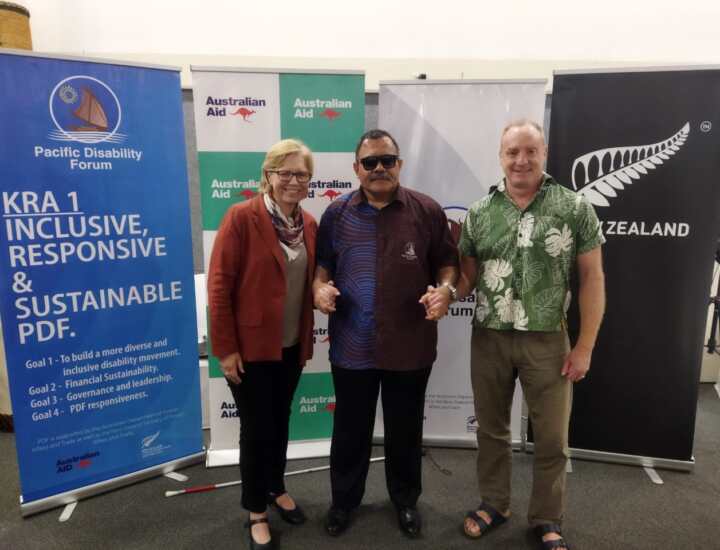
The challenges and our responses
1.7 million people with disabilities in the Pacific
People living with disabilities are one of the most marginalised population groups in Pacific Islands Forum (PIF) countries. At least 1.7 million Pacific islanders are living with some form of disability. People with disabilities are over-represented among those living in poverty and also have lower economic, health and education outcomes.
While most Pacific countries are rated medium or high on the UN human development index, during our decades of work, we have noted significant gaps in services for people with disabilities, while strong movements in the region are calling for increased voice and recognition of rights for people with disabilities.
Barriers to participation and lack of specific supports and services such as assistive technology, rehabilitation, accessible infrastructure, interpreters, a trained workforce and community-based inclusive development mean Pacific Island Countries (PICs) are robbed of the contributions of people with disabilities to social, economic and political life.
A new strategy and a new approach
To respond to these challenges, CBM Australia has played a key role in developing a strategy to engage in the Pacific, where we intend to work collaboratively with CBM New Zealand both regionally and in selected countries.
At the centre of our strategy is a strong partnership with the Pacific Disability Forum and their national and associate members, including the development of an advisory forum to align with the current context and adapt and respond to future challenges.
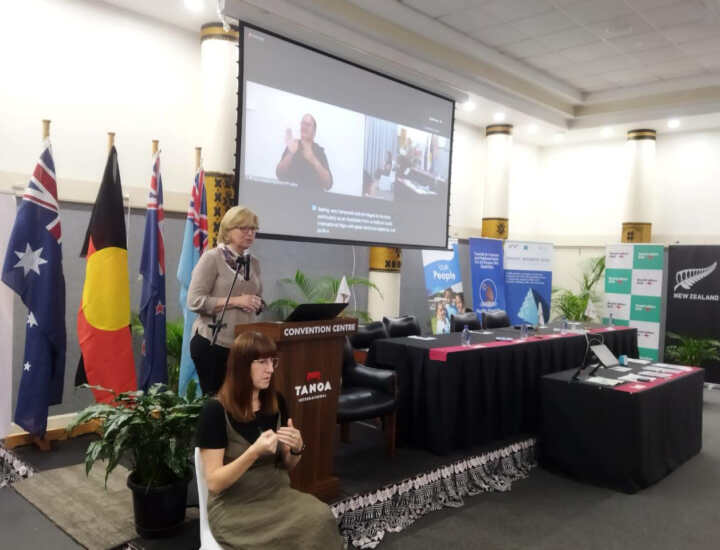
Jane Edge speaking at the 7th Pacific Regional Conference on Disability
The following keynote speech was delivered by the CEO of CBM Australia on Friday 3 March, 2023, in Nadi, Fiji.
“CBM Global is committed to shifting power at all levels of our work, decision making, and governance recognising that building an inclusive world requires us to address deep-rooted inequality and injustice.”
Our Pacific priorities
1. Disability Movement Strengthening
Supporting the development of leaders and helping OPDs strengthen their core organisational functions and deliver their strategies.
2. Disaster preparedness, climate action and emergency response
Ensuring that people with disabilities are included and can actively participate in relevant planning and programs.
3. Addressing gaps in preconditions to inclusion
The preconditions to inclusion are a framework of core components that are essential to enable equity by overcoming barriers that commonly prevent people with disabilities from participating in programs, services, opportunities and everyday life in their communities on an equal basis with others. The preconditions that will be of particular focus for us in the Pacific include assistive technologies, accessibility, non-discrimination and equality, and support services – all with strong focus on participation and empowerment of people with disabilities.
4. Economic empowerment and livelihoods
Livelihood and economic empowerment are crucial for people with disabilities in breaking the cycle of poverty and disability, and addressing the extra cost of disability.
How we work
By combining our three ‘vehicles of change’ – Programs, Advocacy and Advisory – we not only enable much greater inclusion at community level through our field programs, we also advocate alongside the Disability Movement for crucial systems change at all levels and draw on our technical expertise to advise others how to make disability inclusion a reality within their own organisations and programs.

Where we work
Our Pacific partners
Program partners
Disaster Ready Plus: Pacific Disability Forum (PDF), Fiji Disabled Peoples Federation (FDPF), Vanuatu Disability Promotion & Advocacy Association (VDPA), PNG Assembly of Disabled Persons (PNGADP), Ra’es Hadomi Timor Oan (RHTO)
Growing Stronger Together: Pacific Disability Forum (PDF)
Vanuatu: Vanuatu Disability Promotion & Advocacy Association (VDPA)
PNG Project: (1) Eastern Highlands Provincial Health Authority (EHPHA); (2) Catholic Church Health Services (CCHS), Inclusive Education Resource Centres (Goroka, Migende, Wewak)
Regional Health Partnership: Fiji Psychiatric Survivors Association (PSA)

